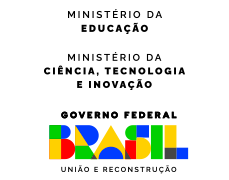Non Cooperative Game Theory
Modeling competitive situations. Games in extensive form. Games in the normal way. Games in strategy form. Mixed strategies and Khun’s theorem. Non-cooperative gaming solutions. Dominance and iterated dominance. Nash equilibrium. Perfect balance in subgame; perfect balance with shaky hand; sequential balance. Applications of equilibrium concepts. Games with incomplete or imperfect information. Bayesian balance. Imperfect Bayesian balance. Applications. Repeated games. Bargain models.
Referencess:
ANNA KARLIN., YUVAL PERES. – Game Theory Alive, to be published by the American Mathematical Society (2016).
FUNDENBERG, D. e KREPS, D. – A Theory of Learning, Experimentation and Equilibrium in Games. Minnesota, Stanford Univ., 1989.
SCHELLING, T. – The Strategy of Conflict, 2nd ed., Harvard Univ. Press, 1980.
THOMAS, L. – Games, Theory and Applications, Chichester, Ellis Harwood, 1984.
Note: This course is offered as a master’s degree. At the PhD, she has additional requirements.


